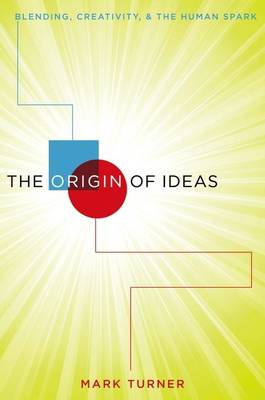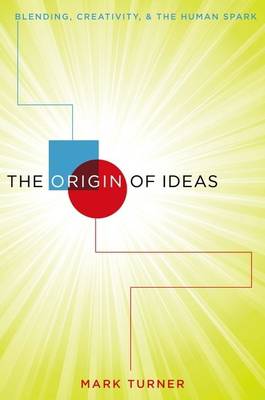
- Afhalen na 1 uur in een winkel met voorraad
- Gratis thuislevering in België vanaf € 30
- Ruim aanbod met 7 miljoen producten
- Afhalen na 1 uur in een winkel met voorraad
- Gratis thuislevering in België vanaf € 30
- Ruim aanbod met 7 miljoen producten
Zoeken
€ 39,99
+ 79 punten
Omschrijving
What makes human beings so innovative, so adept at rapid, creative thinking? Where do new ideas come from, and once we have them, how can we carry them mentally into new situations? What allows our thinking to range easily over time, space, causation, and agency-so easily that we take this truly remarkable ability for granted?
In The Origin of Ideas, Mark Turner offers a provocative new theory to answer these and many other questions. While other species do what we cannot-fly, run amazingly fast, see in the dark-only human beings can innovate so rapidly and widely. Turner argues that this distinctively human spark was an evolutionary advance that developed from a particular kind of mental operation, which he calls "blending" our ability to take two or more ideas and create a new idea in the "blend." Turner begins by looking at the "lionman," a 32,000-year-old ivory figurine, one of the earliest examples of blending. Here, the concepts "lion" and "man" are merged into a new figure, the "lionman." Turner argues that at some stage during the Paleolithic Age, humans reached a tipping point. Before that, we were a bunch of large, unimaginative mammals. After that, we were poised to take over the world. Once biological evolution hit upon making brains that could do advanced blending, we possessed the capacity to invent and maintain culture. Cultural innovation could then progress by leaps and bounds over biological evolution itself, leading to the highest forms of human cognition and creativity.
For anyone interested in how and why our minds work the way they do, The Origin of Ideas offers a wealth of original insights-and is itself a brilliant example of the innovative thinking it describes.
In The Origin of Ideas, Mark Turner offers a provocative new theory to answer these and many other questions. While other species do what we cannot-fly, run amazingly fast, see in the dark-only human beings can innovate so rapidly and widely. Turner argues that this distinctively human spark was an evolutionary advance that developed from a particular kind of mental operation, which he calls "blending" our ability to take two or more ideas and create a new idea in the "blend." Turner begins by looking at the "lionman," a 32,000-year-old ivory figurine, one of the earliest examples of blending. Here, the concepts "lion" and "man" are merged into a new figure, the "lionman." Turner argues that at some stage during the Paleolithic Age, humans reached a tipping point. Before that, we were a bunch of large, unimaginative mammals. After that, we were poised to take over the world. Once biological evolution hit upon making brains that could do advanced blending, we possessed the capacity to invent and maintain culture. Cultural innovation could then progress by leaps and bounds over biological evolution itself, leading to the highest forms of human cognition and creativity.
For anyone interested in how and why our minds work the way they do, The Origin of Ideas offers a wealth of original insights-and is itself a brilliant example of the innovative thinking it describes.
Specificaties
Betrokkenen
- Auteur(s):
- Uitgeverij:
Inhoud
- Aantal bladzijden:
- 312
- Taal:
- Engels
Eigenschappen
- Productcode (EAN):
- 9780199988822
- Verschijningsdatum:
- 30/01/2014
- Uitvoering:
- Hardcover
- Formaat:
- Ongenaaid / garenloos gebonden
- Afmetingen:
- 163 mm x 236 mm
- Gewicht:
- 725 g

Alleen bij Standaard Boekhandel
+ 79 punten op je klantenkaart van Standaard Boekhandel
Beoordelingen
We publiceren alleen reviews die voldoen aan de voorwaarden voor reviews. Bekijk onze voorwaarden voor reviews.











